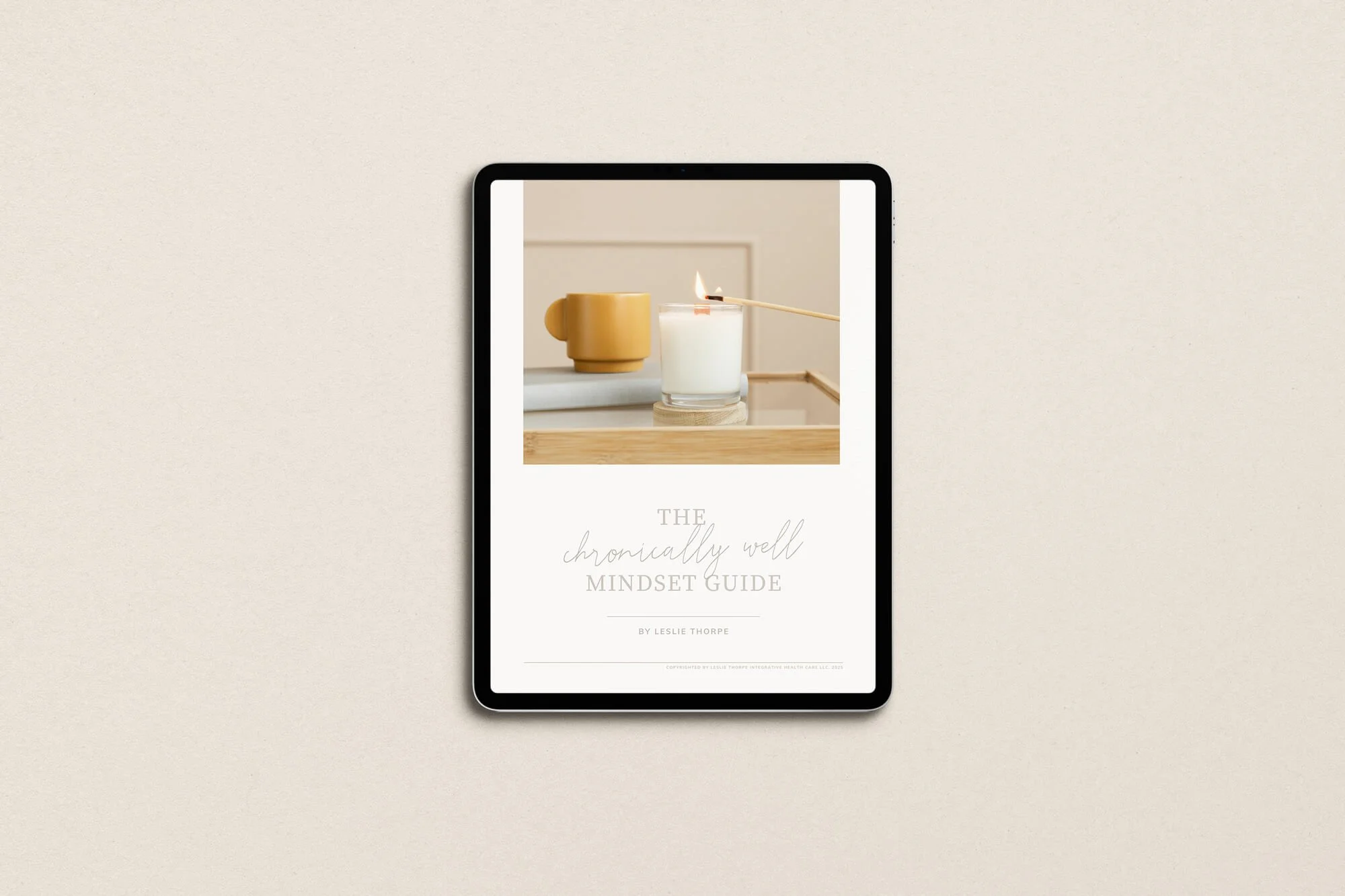The Trouble With Gratitude When Living With Chronic Illness
Gratitude can be a bit of a loaded idea when you are having your worst days with chronic illness.
The benefits of gratitude are myriad. This is common knowledge backed up by neuroscientific studies. However, when you are experiencing your worst chronic illness symptoms, require hospitalization or feel frustration about how your chronic illness is impacting your life, you might have trouble accessing gratitude.
That is human.
That makes sense.
I have been there.
We know we “should” feel gratitude. But, what about when you really don’t? Are you doomed?
I think you are going to be okay. In fact, I believe that the challenges that you are facing will ultimately make you feel deeper gratitude for something else in your life. You might not feel it now, but I suspect you will have that moment.
This is because we truly experience deep gratitude only after having a reason to feel it deeply.
Personally, I don’t think there is anything wrong with moments when your gratitude might be nonexistent, or lean more towards snarky than sincere.
I’m thinking of some of my worst moments, like leaving my last chemo treatment to go to the hospital because I could not breathe due to complications from one of my chemo drugs. Sure, I was grateful that we kept my port accessed so that maybe I wouldn’t need to get another poke for the IV. And, I was grateful that I could receive oxygen. And, I was grateful I didn’t need to leave chemo in an ambulance like some other people did.
I was also grateful that I still had use of my middle fingers (just in case I needed to send an important message).
But, to me, that didn’t feel like gratitude. It felt darker than what I think of when I think of gratitude. It didn’t feel like the gratitude I felt for seeing my daughter’s first steps just after I arrived home from that hospitalization a few days later. Or, the gratitude I felt for having the support of my husband, family and friends.
Those moments feel more like gratitude to me.
But, I had to get through the time when I wanted to flip everyone off. The time when I could barely walk the hospital hallway. The time when I was so exhausted that I did not have the physical energy to lift my head enough to look someone in the eye when they were talking to me.
If you are feeling like you should be grateful in every moment in order to be the chronic illness icon that you are, maybe give yourself some time. Maybe give yourself some space and grace. If you are having a rough go, you deserve to feel your feelings, even if that is being grateful for having a middle finger, if you happen to have that finger. You don’t need to feel like you are #blessed all the time.
But, after you feel the feelings, and get through the worst, I want to give you something to think about.
What if gratitude is not something you need to access in your hardest moments? What if gratitude is something that you access on your own time?
Of course, I was grateful on some level to be able to go to a hospital and receive oxygen. But, I was not really grateful to be in that position in the first place. I was not grateful to learn that I probably should never have been given that particular chemo drug due to previous lung damage from past radiation treatments.
However, going through that experience gave me greater appreciation and gratitude when I was stable enough to leave the hospital. And, that is what I was, and still am, grateful for.
I am grateful to be alive.
I am grateful for my husband.
I am grateful for my daughter.
I am grateful for my family and friends.
I am grateful that my daughter took her first steps to me a few minutes after I returned home from the hospital.
Alternatively, I am grateful my family lied and told me that those were her actual first steps, and I didn’t miss them during my hospital stay. I am not really sure which is true. Either way, they were her first steps for me, and to me, and I could not be happier that I was around to see them.
This is my long way of saying that there is a time and place for everything. There is a time to feel grateful. Just like there is a time to not feel grateful. Clearly we would prefer “positive vibes only.” But, we can’t access deep feelings of gratitude without having had a reason to feel the opposite of grateful for something else.
There is nothing like the worst days of chronic illness to give you clarity on what is good in your life, because there can be so much struggle and adversity that the good just can’t help but stand out. This causes the good things to really shine bright - even, if you are grateful simply that the sun is shining today, you found a fun movie to watch or someone brought you your favorite treat.
To create your Thriving Mindset
Check out Day 6 of the Chronic Wellness Challenge! And, explore my Chronically Well - like the Chronically Well Mindset Guide.
My Hope For You
Wherever you are with gratitude, I hope you find your moments of gratitude when you are good and ready. I hope you feel it deeply and sincerely.
I hope this for you because the positive feelings around gratitude have been shown to positively impact your health and wellbeing.
My disclaimer is that I am not sure if neuroscientific studies have been done on feeling half-hearted or snarky gratitude (i.e., gratitude with an attitude). However, I suspect that gratitude with an attitude has solid health benefits, too. It must. It probably makes you a funnier person, too.
What Are The Benefits Of Gratitude?
Neuroscientists have found that a regular gratitude practice can regulate stress, make you happier and improve your health. Yes, all that.
This is because expressing gratitude:
causes an increase in the level of neurotransmitters that lead to a feeling of happiness;
regulates stress hormones and reduces feelings of fear and anxiety;
encourages positive thinking;
reduces pain; and
improves sleep.
It might sound a little unbelievable and too basic, especially when you are going through the worst parts of chronic illness. But, think about the last time someone expressed heartfelt gratitude for having you in their life. You can’t really argue with those warm feelings, even when you are feeling your worst.
Quick Tips For Finding Gratitude
Tip One: Consider expressing gratitude to yourself by recognizing all that you are doing to navigate life with chronic illness.
Notice what your body has been through to get you to today.
Notice how your inner compass and inner strength has helped you get to today.
These can be complicated considerations if you have significant negative thoughts about how your chronic illness has impacted your body and life. But, reframing things by noticing what your mind and body have been through might lead to more self-compassion and the health benefits of gratitude.
Tip two: Consider expressing your gratitude to someone in your life and create a positive ripple effect of happiness, lower stress and better health.
While there are many difficulties that chronic illness can add to our lives, one of the beautiful silver linings is that many of us can truly appreciate the people and experiences that sustain us and motivate us to keep going. Thanking someone for their role in your life might help to lower your stress level and that of those around you. It's worth a try.
During the Thanksgiving holiday, many of us will take a pause to focus on what we are grateful for in our lives. Even if your gratitude comes with a side of attitude, I hope that you can find something to be grateful for.
I am grateful that you took the time to read this. Thank you!
What are three things you are grateful for today? How do you feel when you think about these things?
Does this resonate?Please share this post with friends! Click the menu on the right to share on social media.





